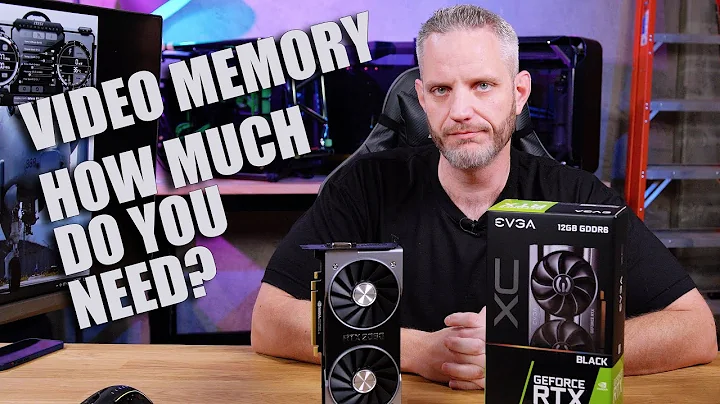What impact do system components (VRAM/RAM, GPU, etc.) have on gaming performance?
In general that is correct, RAM is mostly used for systems processes and is where your running programs store most of their information and use the most memory. For instance, if you look at the memory usage of something like Firefox, most of your memory usage is going to be your RAM.
VRAM is used specifically for calls made to the video card through a graphical API that supports that call. Most of those calls are related to patterns, textures, video processing, etc.; but that line is blurring more and more every day as both the firmware API's on the video cards and software API's we use to program against them are allowing steadily more and more calls to be made to the video card instead.
As far as video games are concerned, it depends a lot on your system.
If you have a system with 4 GB of DDR2 ram, and you have 2 GB of dedicated memory, and 2 GB of shared, your system is going to choke and feel very slow, including the games running on it, as you only left 2 GB of RAM for the other projects.
Also, DDR2 ram is slower than most of the modern dedicated VRAM found on a graphics card.
On the other hand, if you have a very fast set of 12 or 16+ GB DDR3 RAM, the difference between what's dedicated RAM and what's shared RAM is very minimal, and you'll see almost no performance impact on your PC at all.
Edit: On a second note, video RAM, RAM, and graphics card only make up a small portion of your gaming performance. Gaming performance is really based off quite a few factors:
Power capacity/Heat of the system - The smaller power supply you have, and less cooling in your machine, the more heat it generates; as it generates more heat, more errors occur, and processing generally slows down and a lot of modern systems have safeguards that will throttle your CPU, RAM, and video card performance based off them generating too much heat. Most processors, and video cards support more than one connection to your power supply; in general, connecting those extra power connectors to a power supply capable of supporting them will drastically improve the performance of those systems.
CPU - This is a whole subject in and of itself, but a lot of modern games are very very CPU intensive, and a lot of times, even a mid-end video card with a mid or top-end CPU will very easily outperform a system with low CPU power and a very high-end video card. Your game, can only go as fast as the slowest piece is moving. Focusing on just one piece of the system such as a video card, and neglecting the others will net you poor performance in the long run
Other periphals, network card, sound card, etc. - If you're using the onboard network and sound cards of your machine, that's processing and memory resources that are constantly allocated and dedicated to those portions. Even if they have dedicated chips, which they do on some motherboards, those chips have to fit on the motherboard itself, and are usually much weaker than their full add-on/card counterparts. Buying or purchasing a sound card and/or a network card can take a large load off the CPU/RAM, or give you much better performing network speeds and sound speed and quality. Again, if every time the sound driver is used, your system gets slower, the fastest CPU and video card on the planet won't help you much.
Hard disk - If your system is doing great on all of the above, but you put your game on a low-cache, 5400 RPM, older hard drive; you're going to have long load times, slow downs or weird lag if it uses the hard drive intermittently; saves are going to be slower and unreliable, etc. You might as well have not spent the money on the more expensive parts. You really want a 10,000+ RPM hard drive with a high cache, or multiple caches; or an SSD. SSD prices have came down quite a bit, and will make a huge difference in your games giving you performance trouble. While on the hard disk topic, keep in mind OS performance will also degrade on a slow drive, and OS performance also drives gaming performance.
Other running programs - One of the biggest, easiest money savers for computer and gaming performance overall, is to investigate the other programs you have running. Things like firefox, chrome, loaded in the background can take up large amounts of RAM per tab open. Disk defragmenters, anti-virus, etc., can eat large amounts of I/O (disk performance) or CPU. Downloading, or you tube in the background can eat your bandwidth. All of this slows down your performance in-game. Turn off what you don't need, close it, shut it down, if you have the capabilities, make a script that turns stuff on/off for you, and run it before and after you play a game.
GPU and Memory speed - Your question was specifically regarding size of the RAM needed and size of the RAM/VRAM on the video card. That's only half the equation; having a large amount of poorly performing RAM, whether on a video card, or in your machine is worst than having a medium amount of RAM or VRAM that is high performing. Again, it all comes down to slowest denominator; your game is not taking turns with your system hardware, its using all of it at once.
Network/Internet speed This of course only applies to games with online components, but if your internet is really slow, like satellite or dial-up speeds; it won't matter how fast your other hardware is in most of our modern games. Your computer will always be lagging behind, trying to communicate the data at a rate faster than your connection supports, and it will show.
A game is a collection of sound, video, music, voice interaction, hard disk access, memory access, CPU usage, input/output through keyboard/mouse and sometimes a gamepad or controller; all of this sometimes being simultaneously being communicated over the internet for online games. If one part of that system is slow, the whole thing will feel choppy/slow/laggy.
Related videos on Youtube
Dhiwakar Ravikumar
QA Automation Engineer with over 7 years of experience. I worked on delivering several features and products to customers with a high degree of quality. I have designed automation frameworks from scratch & automated several test cases to help boost productivity and increase test coverage while simultaneously improving QA standards. I used to work at Commvault and now I work at Cohesity.
Updated on September 18, 2022Comments
-
 Dhiwakar Ravikumar over 1 year
Dhiwakar Ravikumar over 1 yearI get that RAM in general is just another form of memory (a sequence of bytes) to store some information. So to be more precise, I assume at the hardware level at least, VRAM and RAM are the same.
It's what this memory is used for that makes the difference right?
VRAM is used for rendering textures,storing patters during video processing etc. RAM is used to load any running program (i.e. process).
Or is my understanding incorrect?
Furthermore, as far as video games are concerned which matters more - Total Available Graphics Memory or Dedicated Video Memory?
For example, if I wanted to run a video game that requires 4GB VRAM , then will 2GB of Total Available Graphics Memory + 2GB of Dedicated Video Memory = 4GB of Dedicated Video Memory?
-
David Schwartz over 9 yearsIn the old days, VRAM was dual ported so it could be accessed by the CPU and GPU (or, going way back, the GPU and RAMDAC) simultaneously.
-
 magicandre1981 over 9 yearsthe 2GB DDR3 VRAM will slow down gaming a bit compared to GDDR5 VRAM.
magicandre1981 over 9 yearsthe 2GB DDR3 VRAM will slow down gaming a bit compared to GDDR5 VRAM.
-
-
 Dhiwakar Ravikumar over 9 yearsI have a laptop with 8GB DDR3 RAM & A 2GB DDR3 Graphics Card and a total graphics memory of 4GB , which leaves me with 6GB of Main RAM .Hope its enough for games
Dhiwakar Ravikumar over 9 yearsI have a laptop with 8GB DDR3 RAM & A 2GB DDR3 Graphics Card and a total graphics memory of 4GB , which leaves me with 6GB of Main RAM .Hope its enough for games -
 Brian Deragon over 9 yearsadded a bit more details
Brian Deragon over 9 yearsadded a bit more details
![How Much Does RAM Affect Gaming In 2020? [Simple Guide]](https://i.ytimg.com/vi/eLSTWWP4Dts/hq720.jpg?sqp=-oaymwEcCNAFEJQDSFXyq4qpAw4IARUAAIhCGAFwAcABBg==&rs=AOn4CLDd0-r7RKDW7-jmL0W3W_vqBr21rg)



